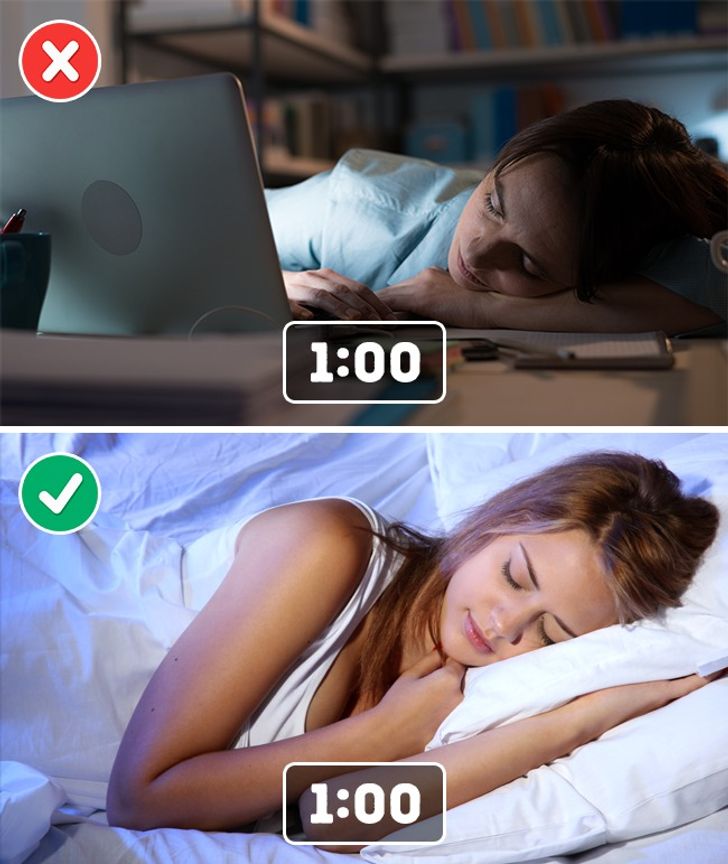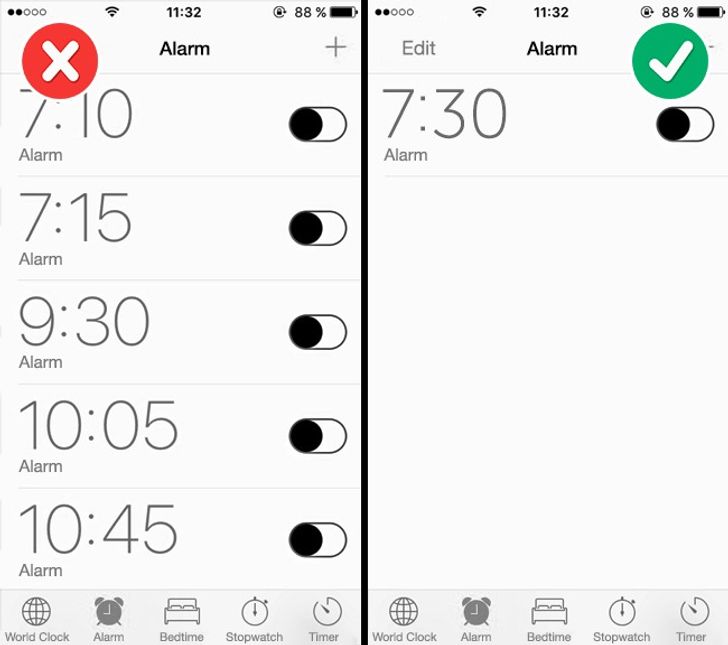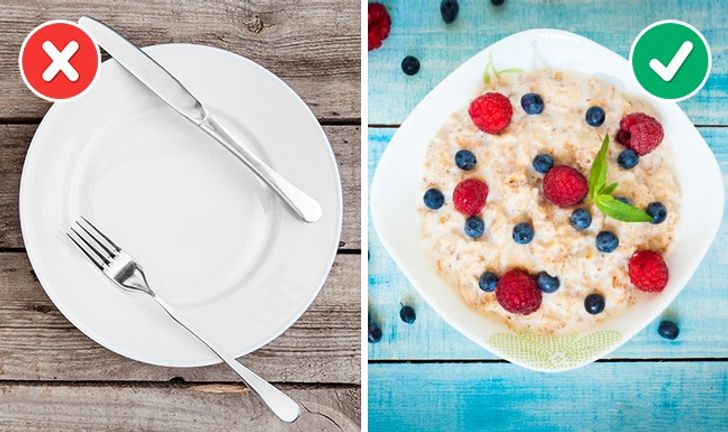The feeling is very familiar to many of us: after going to bed early and sleeping no less than 8 hours, you still haven’t gotten enough sleep and feel tired. We often blame stress and endless daily runs, but sometimes the causes of morning fatigue are quite different.
We will tell you what is preventing you from getting a good night’s sleep.
No Daily Schedule

Our lives follow the circadian rhythm (also known as the biological clock), which is a regular cycle of alternating sleepiness and alertness.
By going to bed at different times each night, we break this cycle and it can lead to drowsiness and tiredness. It’s worth getting used to going to bed at the same time every night.
Catching Up On Sleep At The Weekend

If you sleep 5 to 6 hours during the week, while the time you spend in bed on the weekend doubles, you, again, break your body’s biological rhythm.
In addition to sleep disorders, you are fraught with an increased risk of developing obesity, type 2 diabetes, and cardiovascular disease. To avoid this, try not to vary the time of your awakening by more than one hour.
Hitting The Snooze Button

Another 15 minutes from your alarm clock won’t do you any good. Sleeping again, you can slip into a deep sleep phase and feel even more tired upon waking.
It is best to set the alarm for when it is absolutely necessary to get up and train your willpower.
Too Much Light In The Room

If your eyes catch any light, your body suppresses the production of melatonin, the sleep-inducing hormone, which can lead to sleep disturbances.
This effect applies to both natural and artificial light, such as a bright TV button or the light signal from your cell phone, so it is best to completely turn off all electronic devices in your room.
Skipping Breakfast

Breakfast helps activate the biological clock that counts down to the next rest. If you go too long between waking and eating, your body raises the level of cortisol, the stress hormone.
Eating Starchy And Sweet Foods Before Sleeping

Eating before bed is detrimental not only to the body but also to sleep. This is especially true for foods with a high glycemic index, which increases the level of cortisol in your body.
This effect lasts for 5 hours, so it is best to give up pizza, cakes, and potatoes 5 hours before bed and replace them with lighter foods, such as yogurt or low-fat meat.


